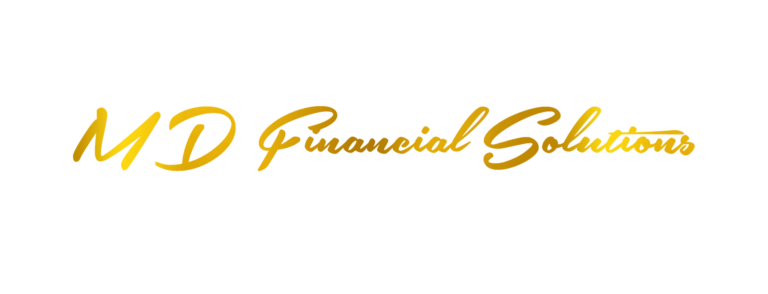You've got questions and we've got answers!
We have compiled some of the most common questions we receive about the services we offer, feel free to contact us with any other inquiries you may have or if you still need further assistance. h
What are the advantages of shopping for insurance through an independent agent?
An independent agent can offer you a personalized service that saves you time and money. The agents at MD Financial Solutions will provide you with peace of mind you won’t find anywhere else. We will also provide more options than captive agents do because we represent several insurance carriers and can help you compare several policies to find the best coverage for you.
What information will I need when I apply for an insurance policy?
The agents at MD Financial Solutions will start by asking basic information to get to know you better, followed by a series of questions that will be used to determine your premium (name, age, gender, address, etc.). If you are seeking auto insurance, your agent will need to know about your previous driving record, whether you have had any prior car accidents and/ or citations, and your vehicle information. This information is used by insurance carriers to determine your rate.
1. What is estate planning?
Estate planning is the process of organizing and managing your assets during your lifetime and ensuring their smooth transfer to your intended beneficiaries upon your passing. It involves creating legal documents such as wills, trusts, and power of attorney to protect and distribute your assets according to your wishes.
2. Do I need an estate plan if I have a small estate?
Regardless of the size of your estate, having an estate plan is important to ensure that your assets are distributed according to your wishes and to minimize potential conflicts or legal issues for your loved ones. We can help you create an estate plan tailored to your specific needs, regardless of the size of your estate.
3. What is the difference between a will and a trust?
A will is a legal document that specifies how your assets should be distributed after your passing. A trust, on the other hand, is a legal arrangement in which you transfer your assets to a trustee to manage and distribute them according to your instructions. Trusts can offer various benefits, including avoiding probate and providing greater control over asset distribution.
4. How to avoid my estate going to probate?
To avoid your estate going into probate, you can employ certain strategies during your estate planning process. Here are some options to consider:
-
Create a Revocable Living Trust: A revocable living trust is a legal document that allows you to transfer your assets into the trust during your lifetime. As the trustee, you retain control over the assets, but upon your passing, the trust assets can be distributed to the named beneficiaries without going through probate. This can help expedite the transfer of assets and maintain privacy.
-
Utilize Beneficiary Designations: Certain assets, such as life insurance policies, retirement accounts, and payable-on-death bank accounts, allow you to designate beneficiaries. When you pass away, these assets can be transferred directly to the designated beneficiaries without probate involvement.
-
Joint Ownership with Right of Survivorship: Owning property or assets jointly with someone else, such as a spouse or family member, with the right of survivorship means that the ownership automatically transfers to the surviving owner upon your passing. This method avoids probate for those jointly owned assets.
-
Gift Assets During Your Lifetime: You can consider gifting your assets to your intended beneficiaries during your lifetime. By reducing the overall value of your estate, you may be able to minimize the need for probate.
-
Establish Transfer-on-Death Deeds: In some jurisdictions, you can utilize transfer-on-death deeds for real estate. This allows you to designate a beneficiary who will receive the property upon your passing without going through probate.
-
Minimize Probate Assets: By structuring your assets appropriately, you can minimize the assets subject to probate. For example, establishing trusts, ensuring proper beneficiary designations, and re-titling assets can help keep them outside of the probate process.
-
Consult with an Estate Planning Attorney: It’s essential to work with an experienced estate planning attorney who can guide you through the process and help you utilize the most suitable strategies for your specific situation. They can ensure your estate plan is comprehensive, legally sound, and tailored to your goals.
Remember, estate planning laws can vary by jurisdiction, so it’s crucial to consult with a local attorney who is familiar with the specific regulations in your area. They will be able to provide you with guidance and assistance in structuring your estate plan to minimize the likelihood of probate.
What are some common coverage options for personal auto insurance?
- Liability Coverage: This coverage pays for damages if you’re at fault in an accident that causes injuries or property damage to others.
- Bodily Injury Liability (BI): Covers medical expenses, lost wages, and legal fees for injuries caused to others in an accident you’re responsible for.
- Property Damage Liability (PD): Covers the cost of repairing or replacing the property of others that you damage in an at-fault accident.
- Collision Coverage: Covers the cost of repairs to your own vehicle after a collision, regardless of fault. It may require a deductible.
- Comprehensive Coverage: Covers damage to your vehicle caused by events other than collisions, such as theft, vandalism, natural disasters, or hitting an animal. It also often has a deductible.
- Uninsured/Underinsured Motorist (UM/UIM) Coverage: Protects you if you’re in an accident with a driver who doesn’t have insurance or has insufficient coverage to pay for damages or injuries.
- Medical Payments (MedPay) Coverage: Pays for medical expenses for you and your passengers resulting from an accident, regardless of fault.
- Personal Injury Protection (PIP) Coverage: Available in some states with no-fault insurance systems, PIP covers medical expenses, lost wages, and other related costs resulting from an accident, regardless of fault.
- Rental Reimbursement Coverage: Pays for the cost of a rental vehicle while your car is being repaired after a covered accident.
- Emergency Roadside Assistance: Provides assistance, such as towing, battery jump-start, fuel delivery, and lockout services, in case of a breakdown or roadside emergency.
It is important to note that coverage options can vary depending on the insurance provider and the state in which you reside. It is recommended you consult with one of our licensed insurance agents to review the coverage options available to you.
If I drive an old car, do I really need to purchase auto insurance?
Every state has different requirements but if you own a motor vehicle with four or more wheels in Florida, Florida law requires that you carry at least $10,000 of personal injury protection (PIP) insurance and a minimum of $10,000 of property damage liability insurance. You have the option to not elect any physical damage coverage to cover your personal vehicle.
What is the difference between comprehensive and collision insurance?
Collision insurance covers damages to your vehicle when your vehicle collides with another vehicle or object while comprehensive insurance provides coverage for direct physical damage losses to your auto. For example, if you collide with another vehicle or a guardrail, the damages to your car can be paid under your collision coverage. On the contrary, damage to your vehicle caused by fire, theft, windstorm, vandalism, flood or even hitting an animal can be covered under your comprehensive coverage.
Am I required to have uninsured motorist (UM) insurance on my policy?
UM insurance is not required in the state of Florida but it is beneficial. UM pays if you are involved in a hit-and-run accident. UM can even apply in the event you and your passengers are hit by someone who is deemed at fault for an accident that does not carry sufficient liability insurance to cover the total damages sustained. UM also applies if you are hit by someone who does not have insurance.
Whether you are riding in your car, riding in a friend’s car or even struck by a car as a pedestrian; UM insurance can make payments for medical expenses, lost wages that is beyond your PIP coverage, bodily injury, sickness, disease or death resulting from a motor vehicle accident that you and your passengers suffer.
How is the cost of my car insurance determined?
There are several factors that can can affect the cost of your car insurance. Some of the determining factors that affect the cost of insurance is the type of car you drive, where your vehicle is garaged, what you use your vehicle for, your age, and your driving record to list a few. An adult with a clean driving record usually pay less for auto insurance than a young driver with lots of traffic citations.
What are the coverage options typically available for flood insurance?
- Building Property Coverage: This coverage protects the structure of your building, including the foundation, walls, electrical systems, plumbing, HVAC, and appliances. It typically covers the cost to repair or rebuild the structure if it is damaged by a flood.
- Personal Property Coverage: This coverage protects your personal belongings, such as furniture, electronics, clothing, and appliances, from damage caused by a flood. It typically provides reimbursement for the cost to repair or replace items that are damaged or destroyed.
-
Contents Replacement Cost Value (RCV) Coverage: This optional coverage pays the actual cost to replace damaged or destroyed personal belongings, without considering depreciation.
-
Contents Actual Cash Value (ACV) Coverage: This optional coverage pays the cost to replace damaged or destroyed personal belongings, taking depreciation into account.
- Increased Cost of Compliance (ICC) Coverage: In some cases, if your building is substantially damaged by a flood, this coverage helps cover the cost of bringing it into compliance with current building codes and requirements.
It’s important to note that flood insurance is typically offered through the National Flood Insurance Program (NFIP) in the United States, although private insurance companies may also provide flood insurance coverage. The coverage options and terms may vary depending on the insurer and policy. It is recommended to consult with one of our licensed insurance agents who specializes in flood insurance to understand the specific coverage options available to you and their associated costs, deductibles, and limitations. Additionally, it is crucial to evaluate your property’s flood risk and consider obtaining flood insurance even if you do not reside in a flood-prone area.
Am I required to have a homeowner’s policy?
Just about anyone who owns or leases a property should consider having a homeowner’s policy. Homeowners insurance is typically required by lenders to obtain a mortgage.
What does homeowners insurance cover?
Here are some common coverage options for home insurance:
- Dwelling Coverage: Protects the structure of your home from covered perils, such as fire, windstorm, or vandalism. It typically covers the cost to repair or rebuild your home’s structure.
- Other Structures Coverage: Covers structures on your property that are separate from your main dwelling, such as garages, sheds, or fences.
- Personal Property Coverage: Protects your personal belongings, such as furniture, appliances, electronics, and clothing, from covered perils. It typically provides reimbursement for the cost to repair or replace items if they are stolen, damaged, or destroyed.
- Liability Coverage: Covers legal expenses, medical bills, and other costs if someone is injured on your property and you are found responsible. It also offers coverage if you or a family member accidentally cause damage to someone else’s property.
- Additional Living Expenses (ALE) Coverage: If your home becomes temporarily uninhabitable due to a covered loss, this coverage helps pay for additional living expenses like hotel bills, meals, and other accommodations while your home is being repaired or rebuilt.
- Medical Payments to Others: Covers medical expenses if a guest is injured on your property, regardless of fault. It provides a limited amount of coverage for minor injuries, regardless of whether you are liable.
- Scheduled Personal Property Coverage: Provides additional coverage for high-value items such as jewelry, artwork, antiques, or collectibles that may have coverage limits under standard personal property coverage.
Remember, coverage options can vary depending on the insurance provider and the specific policy. It is crucial to review the details of each coverage option, including any limits, deductibles, and exclusions, to ensure you have the appropriate protection for your home and belongings. Consulting with one of our licensed insurance agents or representatives is recommended to understand the specific coverage options available to you and their terms and conditions.
How can I get a better home insurance rate?
When you shop for rates, make sure each carrier offers the same coverage you are looking for. Often times, you will find a cheaper rate but it does not include the same coverages. Most carriers also offer a a discount when you bundle your auto and home insurance policy with them. The most proven way to lower the cost of your homeowners insurance policy is to raise your deductible. Many people fail to realize that the higher the deductible, the lower the premium will be, sometimes by as much as five or ten percent.
How are covered losses under a homeowner’s policy paid?
Covered losses can be paid on a actual cash value (ACV) basis or on a replacement cost basis. When ACV is used, the policy owner is entitled to the depreciated value of the damaged property while under replacement cost, the policy owner is reimbursed on the amount necessary to replace the article with one of a similar type and quality at current prices.
What are some factors to consider when purchasing homeowners insurance?
For starter’s, the coverage limit of your house should equal 100% of its replacement cost. If your policy limit is less than 80% of the replacement cost of your home, any payment from your insurance provider will be less than the full cost to replace your home, you will have to come out of your own pocket. You should also be sure that the personal property and personal liability limits you choose are sufficient for your needs.You should also consider whether or not you need any additional endorsements for some of your most prized possessions, like your jewelry.
How much does small business insurance cost?
Each insurance carrier looks at different aspects of your business and weighs certain factors differently to determine your rate.
- The older your business, the lower the insurance rates you’ll be able to qualify for.
- The greater your balance sheet, the higher the risk of you being sued.
- Businesses in the construction industry, for example, carry a greater risk than a credit consulting firm.
- The more claims against your company, the greater the risk.
How can I get the best insurance policy for my business?
What is the real risk my business may face? What is the best solution to manage those potential risks? If you can not answer these questions call us now! It is highly recommended that business owners locate an independent agency that specializes in commercial insurance to help find the best policy rather than going directly to an insurance company or captive agent that can only quote from one provider. Our agents will ensure that you choose the best deal on a policy package while ensuring that you are not underinsured nor over-insured.
If you do not see the answer to your question, contact us for immediate assistance. Our experienced agents will be more than happy to provide you with any information you need to help you make an informed decision.


